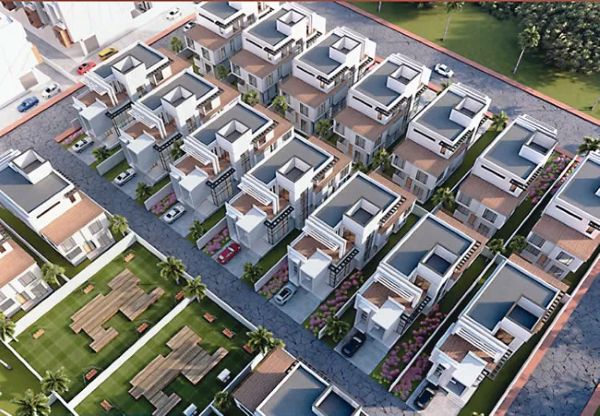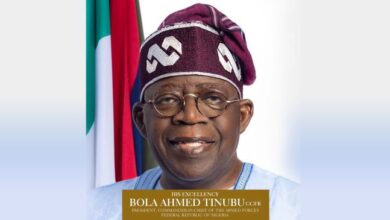Lagos Housing Drive nears 10,000 homes milestone – Targets 14,000 by 2026

In what industry observers describe as a significant milestone in urban housing policy implementation, the Lagos State Government has announced that it has delivered 9,970 housing units in the last six years—bringing it closer to its 14,000-home target aimed at addressing the state’s chronic housing deficit.
The announcement was made by the Commissioner for Housing, Mr. Moruf Akinderu-Fatai, during the 2025 Ministerial Press Briefing held in Alausa, Ikeja, as part of the second-year anniversary activities marking Governor Babajide Sanwo-Olu’s second term in office.
A Bold Push Against a Staggering Housing Deficit
Lagos, Nigeria’s commercial nerve centre, continues to battle a rapidly growing housing shortfall, estimated to exceed 3 million units, driven by increasing urban migration, population growth, and a swelling informal sector. Against this backdrop, the delivery of nearly 10,000 new homes is no small feat—but it’s also just a fraction of what the state truly requires.
“Affordable housing remains one of the most pressing needs in Lagos,” Akinderu-Fatai said. “We are committed to ensuring that low- and middle-income earners are not left out of the housing economy.”
The Commissioner disclosed that 18 new housing estates have been delivered across diverse locations—including Sangotedo, Igbogbo, Epe, Odo-Onosa Ayandelu, Badagry, and Igando—a clear strategy to decentralize development and reduce inner-city congestion.
Pipeline Projects and Phased Delivery
Beyond what’s already been completed, the government is aggressively ramping up its housing pipeline:
- 4,052 housing units are currently under active construction.
- 2,224 more are in the design and planning phase.
These upcoming developments are projected for completion between late 2025 and early 2026—reflecting the administration’s resolve to hit the 14,000-home benchmark.
Funding Strategy: A Mixed-Model Approach
Critically, Lagos is deploying a multi-pronged financing model to scale housing delivery, combining:
- Direct budgetary allocations
- Joint ventures with private developers
- Public-private partnerships (PPPs)
This diversified approach helps de-risk the real estate investment climate in the state, allowing both public and private capital to find mutual value—an increasingly common tactic in mega cities around the world.
One of the standout policies under this model is the Rent-To-Own scheme managed by the Lagos State Mortgage Board. Under the initiative, residents can make monthly installment payments over several years, instead of bearing the prohibitive burden of full upfront payment.
“So far, over 20,000 Lagosians have enrolled in the Rent-To-Own programme, and 212 of them have fully paid off and are now proud homeowners,” Akinderu-Fatai stated.
Thematic Alignment with THEMES+ Agenda
The housing policy directly aligns with Sanwo-Olu’s THEMES+ Agenda, which focuses on six development pillars: Transportation, Health, Education, Economic Growth, Entertainment, and Security—with Housing being a critical enabler of these priorities.
The Commissioner emphasized that quality and livability standards are non-negotiable. All new estates are developed with essential infrastructure, including road networks, drainage, water systems, and power supply, to promote long-term sustainability and decent living conditions.
“It is not just about numbers. We are making sure that the homes we deliver are livable, safe, and built to last,” he assured.
Challenges: Rising Costs and Local Innovation
Despite commendable progress, the programme is not without headwinds. Chief among them is the escalating cost of building materials, driven by inflation, FX volatility, and global supply chain disruptions. The state is, however, adopting local sourcing strategies and exploring innovative financing models to cushion the effect.
“We know the need is great, and we are doing everything possible to meet it. No part of Lagos will be left behind,” the commissioner affirmed.
BRANDECONOMY Insights: What This Means for the Real Estate Market
For real estate investors, developers, and policy analysts, Lagos’ trajectory reveals several key trends:
- Devolution of housing projects to peri-urban areas signals opportunities for land banking and infrastructure-led growth outside the city core.
- The Rent-to-Own model is reshaping homeownership narratives for Lagos’ emerging middle class.
- Public-private partnerships remain the best bet for bridging the massive housing gap—especially with shrinking public budgets.
As the state pushes toward its 14,000-home goal, all eyes will be on delivery timelines, project quality, and the sustainability of financing models—which will ultimately determine whether Lagos can truly become a more inclusive city for all income brackets.











